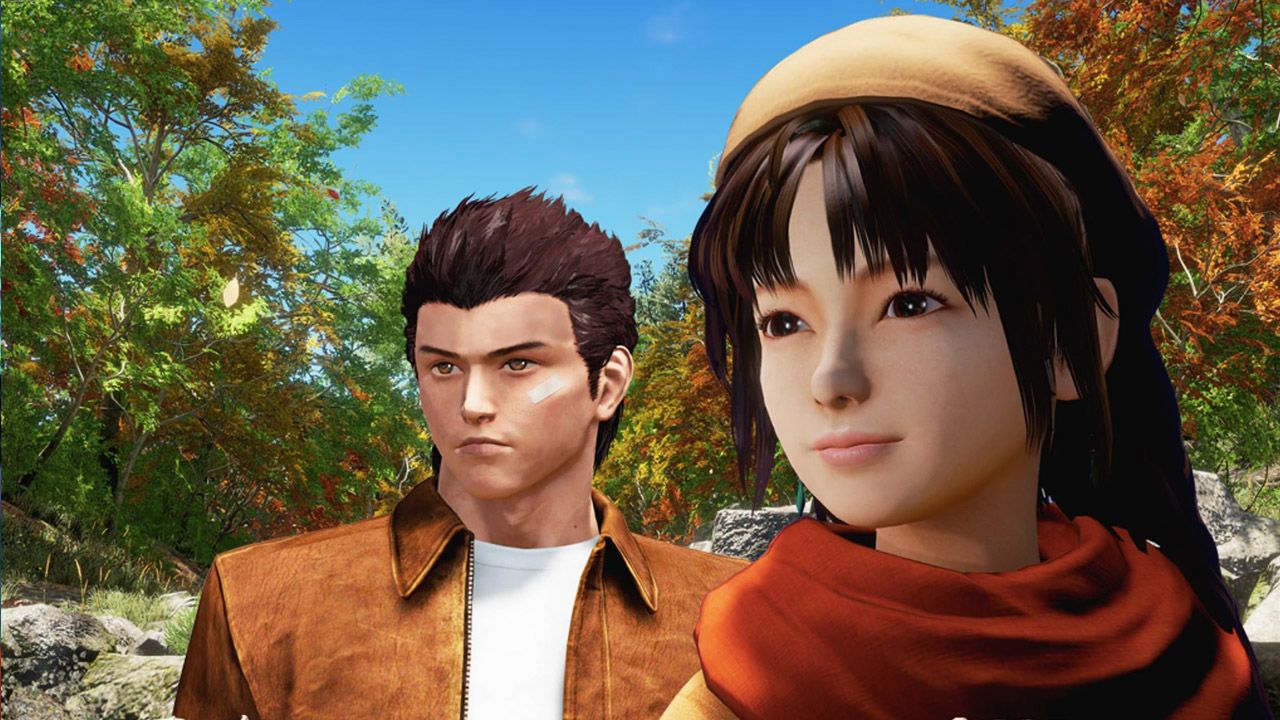This article is part of One More Run, Polygon’s week-long series exploring roguelikes.
No one really wants to lose in a video game. They’re something of a power fantasy, after all. Whether you’re trying to overcome an Elden Ring boss or simply beat your older brother in Madden, the goal is to win. Yet one genre of games revolves around losing, and actually makes it… fun?
To say you’re going to lose in a roguelike is to say you’ll get hungry around midday or you’ll hit rush hour traffic on your way home from work. It’s simply gonna happen. Unlike losing in a Soulslike, it’s not deflating or discouraging, and instead losing in a roguelike encourages us to push forward. “One more run,” we say, even though it’s past midnight and we have a 6:30 a.m. alarm.
Because roguelikes rely on randomized level generation, players are hooked by the “appeal of, ‘I don’t know what I’m gonna step into’ […] That is kind of fun. That gives a refreshing feeling,” Washington D.C.-based psychiatrist Dr. Ashvin Sood told Polygon in a video interview.
Dr. Sood, who specializes in working with children and young adults, and how they interact with digital media, said he’s recently gotten into the genre, but absolutely loves roguelikes, listing Dead Cells and Curse of the Dead Gods as a couple of his favorites. He also mentioned a love for Hades, Supergiant’s 2018 roguelike that elevated the genre to mainstream status.
Something that makes Hades so appealing is how accessible it is. “Hades telegraphs really well how things work, and it teaches you, I think, very well,” Dr. Jeremy Lichtman, a clinical psychologist in New Jersey who specializes in cognitive behavioral therapy (CBT) and also works with adolescents, told Polygon over video.
With how well Hades teaches, it also encourages experimentation. “[There’s] this empowering feeling of like, ‘Well, what can I create next? What will happen next? What strategy will work next?’” Dr. Lichtman said. He noted that sometimes a roguelike’s complexity can become an overwhelming “barrier” that may turn players away. “I feel like [roguelikes] can just be kind of mechanically complex upfront, sometimes,” Dr Lichtman said. While he’s more of an RPG person, Hades is the roguelike that clicked with him, as it did with so many players — even through the losing.
Though “the point of a roguelike is to lose a lot,” as Dr. Lichtman said, losing doesn’t necessarily inhibit progression. Yes, you’ll have to start the game over again from the beginning, but there is a “metaprogression,” earned from each run, as Dr. Sood called it.
“When you’re talking about what do people get enjoyment out of, personally, as a player, the enjoyment is the sense of ‘Oh, how do I get a little bit further next on this run,’ the sense of accomplishment, and I can measure it by getting little pieces of the story,” Dr. Sood said.
In many roguelikes — whether heavy hitters like Hades and its sequel or under-the-radar games like Wizard of Legend and Lost in Random: The Eternal Die — the player is returned to a hub world after death. They’re greeted with new bits of dialogue advancing the story or the player character’s relationships with those around them. “The story still evolves even if I fail. I think that’s it. I think that’s relatable. In our lives as people and individuals, if we mess something up, our world continues to grow,” Dr. Sood said. In Hades, for example, Zagreus can converse with Dusa before heading out as well as have a new conversation each time facing Meg, one of the Furies that act as the first boss. Their relationship isn’t “dependent on how far you get, but still, the relationship is gonna change” win or loss, Dr. Sood said.
You’re not just greeted with progression in the story, but in the roguelike’s mechanics as well. When I asked Dr. Lichtman about the appeal of starting from scratch on a fresh run, as on death roguelikes will strip you of any upgrades and stat bonuses accrued on a previous run, he checked me on my language. “You don’t start from scratch, because your skills have improved,” he said. “You understand the world better,” and as humans we have a desire to understand the world around us better — including in our roguelikes.
“I think you’re learning, and I think that’s a really big piece of why people like roguelikes,” he said. “[You’re] not just learning, you can experiment […] we want to keep doing things until we get the really good rewards.”
Those rewards often come as means to modify a build, whether it be a permanent upgrade that lasts between runs or a new weapon skill. Autonomy is something Dr. Sood identified as a core appeal of roguelikes, and autonomy shows up in how a player crafts their build. “Each build that you make in a roguelike really gives you a sense of, again, that autonomy feeling. ‘This is my choice.’ […] And your success is dependent on the build.”
Success can mean different things in a roguelike. Of course, making it all the way to the credits of Returnal is a success, but finding out that the Spitmaw Blaster is your best weapon or learning how to leverage the game’s parasite system could be considered successes in their own right.
Experimenting can lead to success, even if that success isn’t defeating the final boss, and experimentation is a large part of what draws people to roguelikes.“You might have a plan, [but] you don’t know if that plan is going to work,” Dr.Lichtman said, which leads to experimentation and, ultimately, learning, a driving force behind the appeal of roguelikes. “‘I’m getting somewhere with this. It’s teaching me something.’ And I know people don’t usually think of video games as teaching, but like that’s really what it is.”
Learning is tied to progression and getting better at a game, and all together they create that consuming drive for “one more run.” “It’s not even like, ‘Oh, maybe this time I’ll beat the boss.’ […] It’s more about, ‘How am I going to beat the boss? Does this strategy work? One more run, maybe this time maybe this other strategy will work, right?’” Dr. Lichtman said. “I think [the appeal is] that feeling of, ‘I’m going to understand this.’”
A roguelike’s accessibility also influences that “one more run” mindset. Often, runs are short, even successful ones, and plenty of fun and learning can be gleaned from a short run. “Roguelikes are much more quick-thinking and action-paced, so you mess up here or there [and think], ‘I can go back and do that,’” Dr. Sood said. “The ones that I find are the most addictive are the ones that the runs aren’t super long […] So the ones where it’s like 15 to 20 minutes, right? It’s just enough attention span to go really hard and do well and progress, and then all of a sudden, if you die, you’re like, ‘Well, I can spend another 15-20 minutes.’” With short runs, players may have a mentality of “if it goes south, I can quickly pick it up again and get right back to where I was.”
While those short runs can still be difficult, presenting challenges even the most experienced players may have trouble overcoming, knowing a roguelike is difficult going into it can be a huge factor in a game’s appeal. Or, as Dr. Lichtman more bluntly put it, “I suspect that people who play roguelikes tend to have a pretty good idea of […] the fact that you are going to die a lot.”
Like the Souslike genre, “roguelikes are particularly good at matching your expectation,” Dr. Lichtman said. Players know they’ll die a lot, but that “dying is actually the lead to learning.”
Metaprogression, learning, experimenting, kernels of success — all of this leads to growing competency in a player, which is something both doctors hammered on as a core appeal of roguelikes. “Humans have [an] inherent drive to feel competent, to feel good about being able to do things, and we also like to feel successful on things,” Dr. Lichtman said.
As Dr. Sood specializes in working with children and young adults, he also commented on how building competency at a roguelike can be beneficial for a young person. “Kids want to be the masters of their own fate, and so connecting with them and seeing how proud they are of what they’ve done, that’s amazing,” he said. For anyone, “gaming can be a great tool for emotional regulation, if you know how to use it appropriately.”
Once that competency is built, playing a roguelike well — and succeeding in it — can almost become second nature. “By the time you get up to fighting Hades himself right at the end of the game, first rounds are usually very easy,” Dr. Lichtman said, calling the power a successful run engenders almost a “comfort food.”
Despite their challenges, roguelikes like Hades do become something of comfort foods as players get better and better at them. They’ll still lose, sure, but that’s the name of the game, and part of why we keep coming back for more. As Dr. Lichtman put it best: “Losing is such a big part of it.”






![18th Aug: The Texas Chainsaw Massacre (1974), 1hr 23m [R] – Streaming Again (6.1/10)](https://occ-0-1081-999.1.nflxso.net/dnm/api/v6/Qs00mKCpRvrkl3HZAN5KwEL1kpE/AAAABZbV8qv1WHQBK_bS2ewx0bJzOooYsgnvn62Gx9ecZF-oD1ZKzOf-ThZ8ITzymcpJNS65brFXlAlh31WatKMWhd-07ASAWelOSOp1KStymMMnh5i6HkU-tuuWZ_1IUKhsrSsNFSDnNrAvoXeXiynzJUvwMwaLgswDSwp-FrsjWySDLQ.jpg?r=74b)










